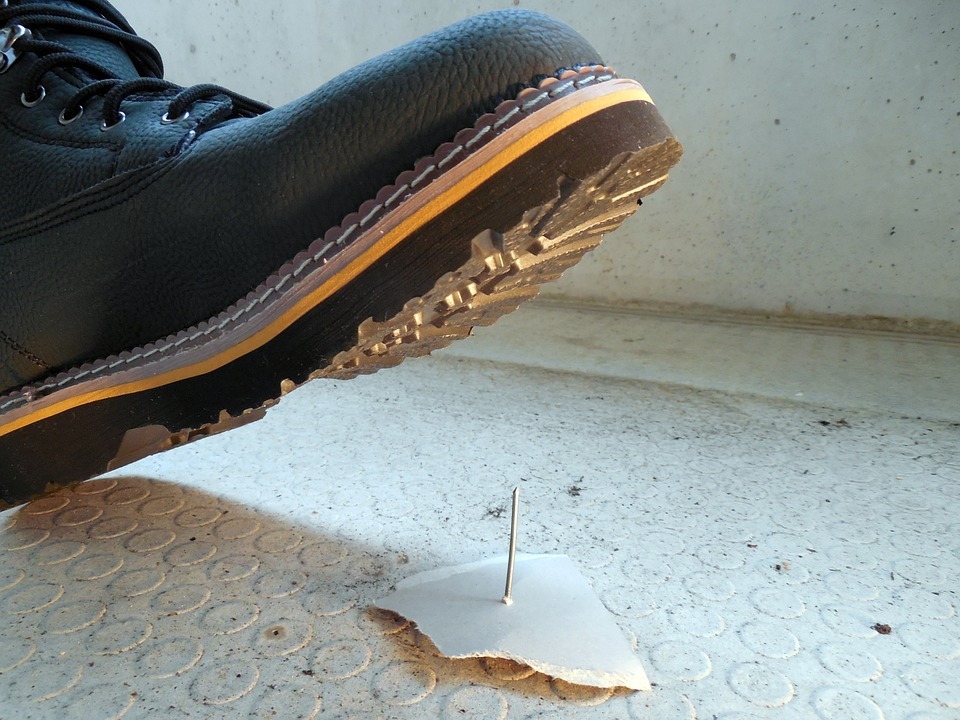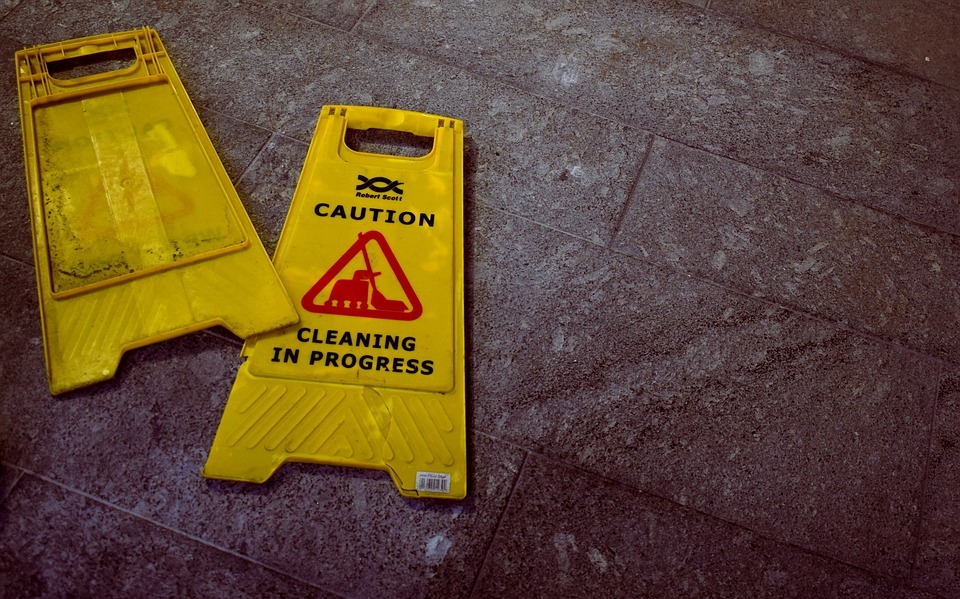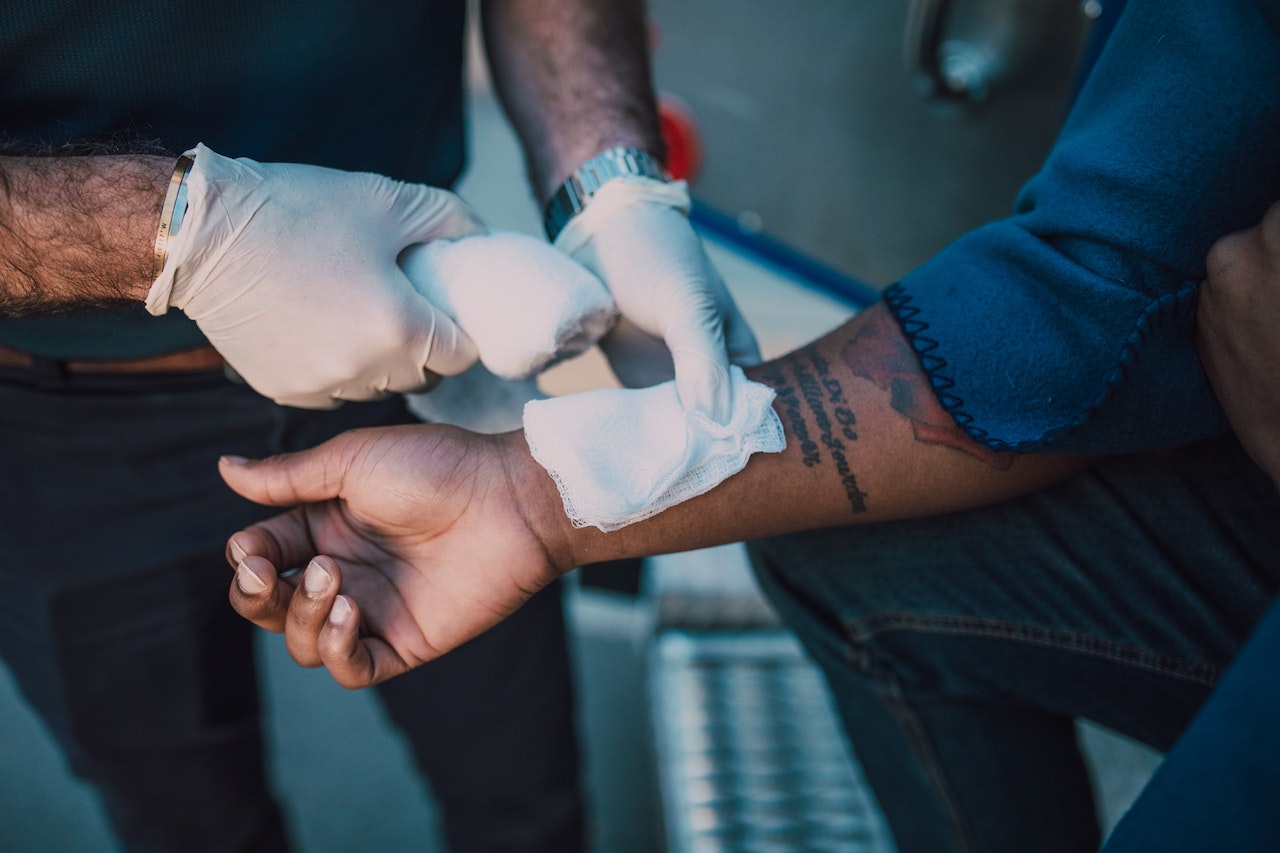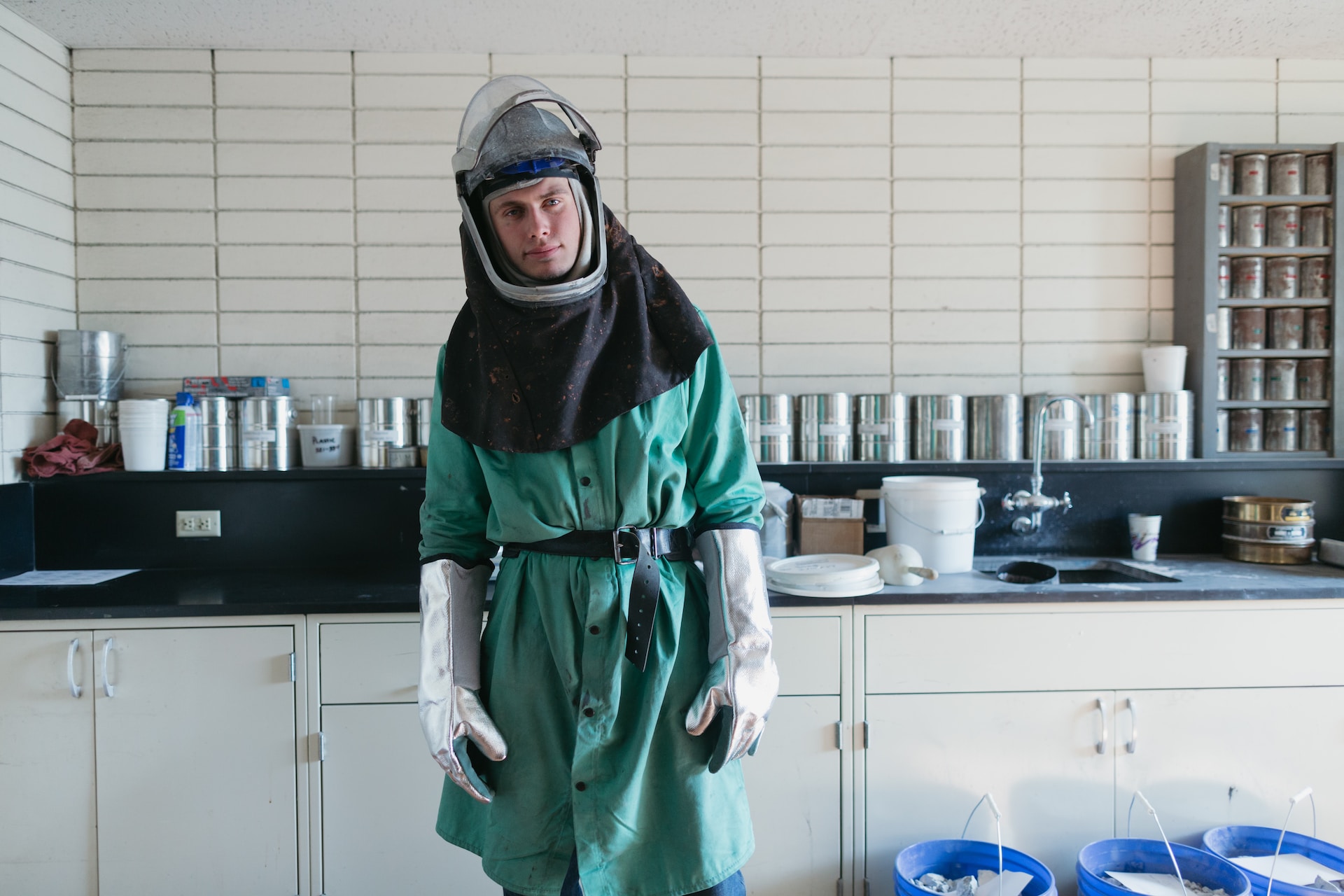In 2019 the Bureau of Labor Statistics (BLS) reported 2.8 workplace injuries per 100 full-time workers in the United States. This means that over four million Americans suffered a workplace injury in 2019. This is a huge quantity of people getting injured in the workplace. If this has happened to you, read on for straightforward tips on what to do after having such an incident.
What is a Workplace Injury?
A workplace injury is defined as an injury received during gainful employment. This means that if you are at the office, or while on out-of-the-office work-related duties, your injury will be classed as a workplace injury. Illnesses caused by poor workplace environments are also covered.
Most Common Workplace Injuries
There are many different types of workplace injuries. A Peoria personal injury attorney described that the most common workplace injuries are slips, trips, and falls (27 incidents per 10,000 workers); accidents involving equipment or other workplace objects (24 incidents per 10,000 workers); and transportation-related injuries (around seven incidents per 10,000 workers). While these are three of the most common scenarios, there are, of course, many other ways in which workplace injuries can be sustained.
So, what should you do if this has affected you?
1. Look After Yourself
The first thing you should do is tend to your injuries, if safe to do so. Your health is the key here, and most important. You can move on to legal matters once you have ensured you are healthy and well. Some injuries are worse than others, and you may be required to go straight to the hospital. Just ensure you do everything first to look after yourself, then move on to step 2!
2. Report The Incident At Work
Once you are safe and well, it’s time to start the best process to work towards legal action. The first thing to do here is to make sure the incident is reported in the workplace. Your company likely has a system to follow when it comes to incident reporting. There may be an incident report book or a particular member of staff working as a liaison for these sorts of things. Be sure to follow your companies exact methods of incident reporting, and make sure your boss or line manager is aware of the incident.
3. Take Photos And Videos
The key evidence that may be used is photo and video evidence. As soon as you possibly can, make sure you have photos of the scene of the accident. Also, check with your company for any CCTV footage that may be available. The quicker you do this, the better, as things at the scene may move or change, and you want an accurate representation of the situation to make sure you get the right amount of compensation.
4. See Your GP
Once the dust has settled, go, and see your physician. Whether you have already been hospitalized or not, you should get a full check-up and a report from a doctor. This way, any long-lasting or not yet noted injuries can be noted, and you also have a second opinion to confirm any other sustained damages.
5. Seek Help From A Colleague
If you have to have time off from work after your accident, ask a colleague to do some of the things above for you. Especially photos and videos. While you are not at work, your company has the chance to change, move, or hide evidence that could hamper your case. Find a colleague you trust who can gather evidence and also help you keep a line of communication open with your boss.
6. Keep Records Of Everything
Keep receipts, photos, and records of every part of this process. This includes your GP report, any travel expenses, medical bills, and photos. The more details you have, the better placed you are to receive compensation, and all your expenses related to the accident would be claimed.
7. Take Everything To A Personal Injury Lawyer
Take all the evidence collected to a personal injury lawyer. Speak with them about your case and how they will move forward. Most injury lawyers work on a no-win, no-fee basis. Your initial consultation will likely be free, and they will only take money from your winnings or settlement. Personal injury lawyers are specialists in these kinds of cases, so make sure to seek out a great one!
So, there you have seven effective tips and steps to follow if you are injured in the workplace. Remember, after all, your health is most important. Make sure you are looked after properly, and you get all the medical help you need. Then work on getting the compensation you deserve!
Usual Injuries Happening At Work
1. Slip and Falls
Slippery surfaces are likely to exist at some point in every workplace. Whatever shop or industry you work in, there is a chance you will sustain a slip and fall injury. Workplace hazards such as icy surfaces, wet floors, unsteady or uneven areas, and poor lighting can all contribute to it.
Falling is one of the most serious hazards of working at a height; falls from ladders and scaffolding are common, but they can also be dangerous. A fall can cause serious injuries such as broken bones, concussions, traumatic brain injury, and spinal cord damage, as well as soft tissue injuries such as a sprained ankle or strain.
Slips and falls can be avoided in many cases. Rather than allowing spills, debris, rain, or slush to accumulate, employers should train and equip their employees to clean up as soon as possible. Make sure you have cleaning supplies on hand, such as a mop and a wiper.
Sloped decks, slippery floors, and other hazards should be marked by the facility manager. The use of brightly colored signage would aid in the prevention of these accidents. Non-slip mats should also be placed at doorways and other areas where surfaces are prone to becoming slippery.
2. Automobile-related Accidents
When there are vehicles, there is always the possibility of an accident. Falling from a moving car, being hit by objects from the vehicle, and being hit by one can all result in injury. Other incidents involving automobiles may occur in the workplace. However, determining who is at risk, where possible incidents can occur, and when they usually occur is an important part of preventing these. As you identify these, it will be easier to put preventive measures in place.
Design all routes in the workplace so that vehicles and pedestrians are always separated. Also, make sure that any obstacles are visible. Signs indicating speed limits or priority signage, in addition to directions, are useful.
3. Overexertion Injuries
According to the Bureau of Labor Statistics, overexertion and bodily reaction account for 282,860 injuries in private companies, making it one of the most common types of work-related injuries. Given that overexertion can be caused by repetitive motions, single events, or holding a position for an extended period of time, it’s easy to see why this is so common.
Overexertion can occur in the following work environments:
- A construction site where heavy tools are used
- Using a truck to transport goods
- Prolonged use of a keyboard for typing
- Inventory or supply lifting
- Putting together items on a production line
- Patients are being relocated
- Sitting at a desk for long periods of time
As a result, almost every worker in every industry suffers from overexertion and bodily reaction injuries. As a precautionary measure, you can:
• Teach employees to lift with their knees rather than their backs.
• Use safety harnesses, back braces, and lifting devices as needed.
• Take frequent breaks to break up the monotony of long-term employment.
• Include ergonomic furniture in your office to improve body posture and reduce stiffness.
• Whenever possible, change employees’ tasks.
• Sitting at a desk for long periods of time
4. Being Hit By Falling Items
There have been numerous reports of workers being injured by falling objects, which are not limited to warehouses. If someone does not expect an object to fall from a shelf or out of a cupboard, they may sustain serious injuries.
You can greatly reduce this risk if you provide appropriate storage mediums and remind your employees how to store items safely. Hard hats and other ergonomic equipment could help reduce the risk.
5. Violence
Coworker disagreements can lead to violence. Workers may also bring domestic violence into the workplace. Customers and other individuals, and in some cases animals and pets, attack those in public-facing positions, including delivery personnel.
Because violence can sometimes result in trauma, it is critical to be open and communicative with your employees about it. Employers must educate their employees about violence and establish channels for reporting suspicious activity. This can at the very least help to prevent mental health problems following a workplace injury.
6. Cuts and Lacerations
Because there are a variety of tools at work that can cause this mischief, offices of all types can cause accidental cuts and wounds to employees. Lacerations are primarily caused by a lack of training and inadequate safety procedures or protection. It is sometimes caused by workers’ carelessness. Supervisors can provide safety equipment and adequate systems, including employee training, to prevent such accidents.
The Importance of Injury Prevention at Work
If you’re an employer, one of your top priorities should be workplace safety and injury prevention. Preventing workplace injuries and accidents is critical for employee health and well-being, as well as morale and productivity. When workplace accidents increase, employee morale and productivity plummet because employees are less inclined to give their all for a company that cannot guarantee their safety. This eventually harms the organization’s bottom line and makes it more difficult to hire talented professionals.
A well-designed accident prevention program will reduce employee injuries, illnesses, and deaths; improve employee performance; boost workforce morale and motivation; and reduce absenteeism.
Ways to Prevent Workplace Accidents
Although no workplace is ideal, it is crucial to understand the fundamentals.
Workplaces would be accident-free in an ideal world. Unfortunately, accidents do happen sometimes, no matter how careful we are. But this shouldn’t be used as an excuse for laziness or pessimism. On the contrary, businesses must constantly be vigilant and ensure that they are taking every precaution to reduce workplace risks.
Here are some fundamental guidelines to follow in order to prevent workplace accidents.
1. Always be alert while on the job.
Distractions, fatigue, substance abuse, and a lack of spatial awareness can all be fatal at work, resulting in serious accidents. Fatigue, in particular, can be devastating.
2. Promote safety awareness and education.
Most safety professionals will tell you that effective training is just as important (if not more) than policy. Workers must understand the hazards of their workplace, as well as how and why what they do could result in injury or even death.
3. Be aware of musculoskeletal disorders (MSDs) and injuries (MSIs).
Many occupational injuries are caused by poor ergonomics – from construction sites to office spaces, poor posture and other factors can have serious consequences. Employers must take preventative measures to avoid workplace injuries.
4. Provide PPE.
Employers may be required to provide some level of PPE to workers, depending on regulations. Certainly, during the current pandemic, protective equipment such as face masks and gloves are required in a variety of workplaces. Providing adequate PPE also contributes significantly to worker confidence.
5. Maintain an orderly workplace and communicate effectively.
Keeping a workplace or site clean and organized is a basic that some businesses seem to overlook. Keep track of inventory, make sure the floor is clear and exits are not blocked, provide safety data sheets for chemicals on-site, and so on. Additionally, signage should be used to keep workers informed.
6. Ensure everyone wear proper attire.
Wearing proper protective clothing, in addition to PPE, is required. It’s not just about the garment; it’s also about the fit. Loose or ill-fitting clothing that can snag or trip over is a major hazard (particularly for women, who continue to struggle with ill-fitting PPE).
7. Check for safety hazards.
This may appear to be a simple step, but knowing which risks are inherent in your workplace is an important part of accident prevention. The same rules cannot be applied uniformly. In addition, increasing inspections of sites and equipment is a great way to keep track of potential hazards as well as areas for improvement.
Conclusion
If you want to protect your workers and reduce injuries, you must take a holistic approach to workplace safety. Ensuring that your facility complies with federal and environmental regulations requires that your employees wear the appropriate protective equipment.
It is critical to respond immediately to any accident. Seeking first-aid treatment and establishing a clinic in the workplace are two examples of what can be done. Also, ensure that the injured employee is seen by a medical professional for a checkup and medication prescription.
It’s also important to have proper training, signages communicating safety requirements, and access to necessary equipment. Risk assessments should be performed regularly as well. Absent-mindedness can’t always be legislated for, but you can avoid a lot of unwarranted mistakes. Follow the tips mentioned above, so you can have a safer working environment for your employees.





